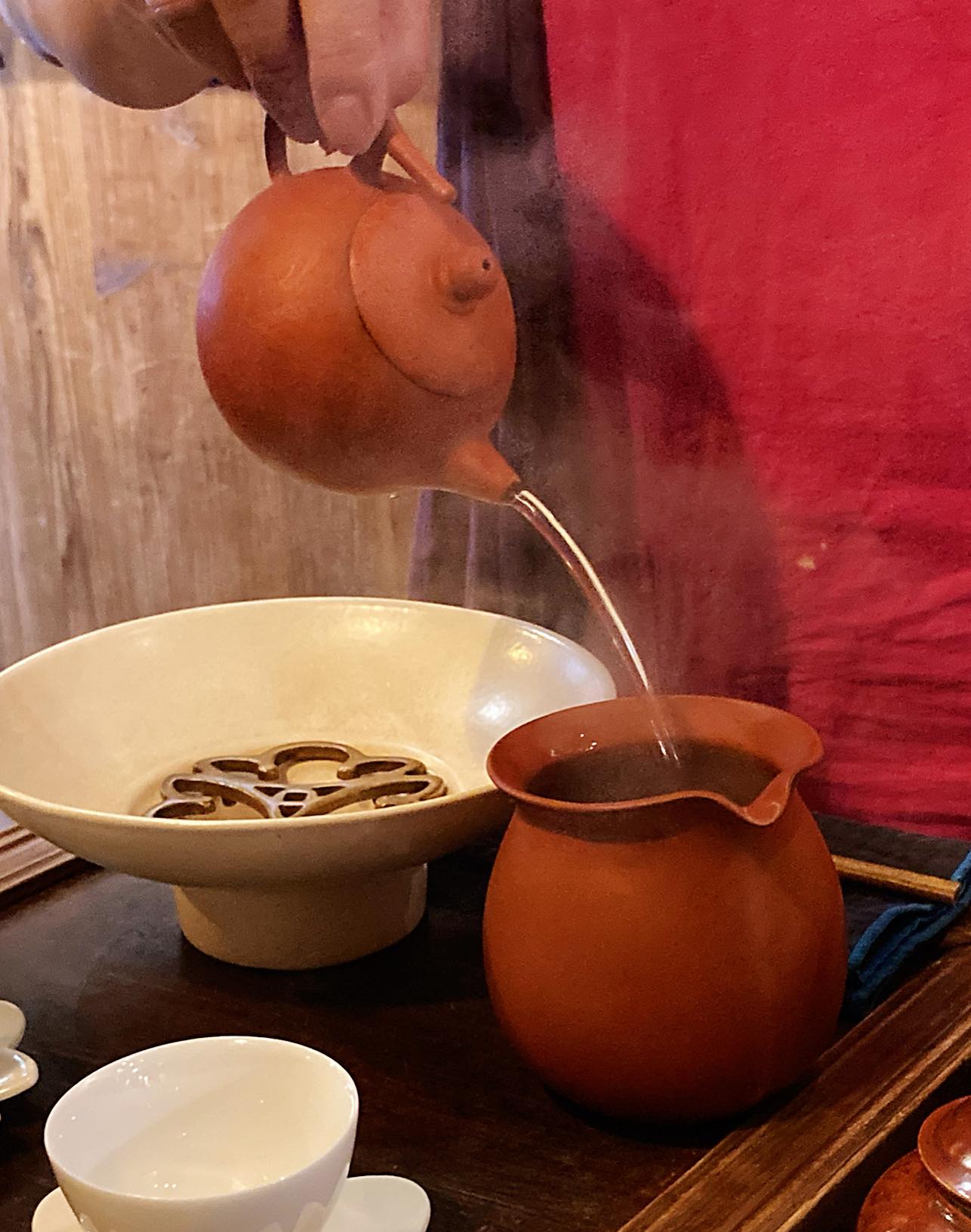What is the reason that the tea is too light or bitter? What is the harm of brewing tea too many times?
Have you ever picked up your gaiwan, picked out your favorite tea, brewed it, only to find that it didn't taste as good as you remembered? Or have you forgotten that it is too bitter now? In any case, we have got some skills to improve the taste, so let's take a look at the following questions! The taste is too light, the bigger the tea, the longer it takes to brew. Next time, try to break the larger tea leaves a little bit, let the taste out, and make it easier for the water to enter the tea leaves. You'll end up with a more delicious coffee and sometimes the tea will fade faster than we thought. If you notice that your tea loses its sweetness only after the first brewing, try to increase the water temperature slightly during the next soak. sometimes we taste it shortly after brewing. We can't taste the subtlety of the tea, because the water is still a little too hot for our taste to capture the subtlety. We suggest waiting for the tea to cool in the cup. Preferably around 160 °F (for small kung fu teacups, this should not take long). Try this technique to see if you can catch some of the more subtle notes. Check to see if the brewing container you use is too small to give the larger tea more room to expand. Sometimes, the tea does not expand enough to release all the flavor into the water, and the brewed tea is a little tasteless.

The tea is too bitter and try to lower the water temperature slightly until your tea has enough taste and there is no astringency. Another good way to avoid bitterness in tea is to brew cold and let the sweetness be released slowly. Leave the unpleasant bitterness behind and try to pour the tea from one container to another. This not only cools the tea, but also allows it to breathe, let the bitterness disappear, and make your brewing sweeter and more fragrant! The bitterness we feel in tea is a direct result of tea polyphenols, namely tannins. Although they are good things, in general, the higher the water temperature, the more obvious they are, while the lower the water temperature, the more obvious the amino acids (these amino acids are the cause of the sweetness of tea). Amino acids are dissolved at 140 °F and tannins are dissolved at 176 °F. For this reason, we don't usually brew green tea at a temperature higher than 176 degrees Fahrenheit, but we usually maintain this temperature to achieve a perfect balance of taste. Have you tried these techniques yourself?
Important Notice :
前街咖啡 FrontStreet Coffee has moved to new addredd:
FrontStreet Coffee Address: 315,Donghua East Road,GuangZhou
Tel:020 38364473
- Prev

Does black tea contain caffeine? Is it refreshing? Which tea has the highest caffeine content?
A common saying is that black tea contains much more caffeine than green or white tea. Many people always choose green tea because they think the caffeine content in green tea is much lower. Others say that green tea contains no caffeine. Five indisputable facts about the caffeine content in tea: 1. Everything extracted from camellias
- Next

Honey snow ice city set up nine companies a year. How did it develop? why did it suddenly become popular?
Everyone's impression of the snow ice city is estimated to stay in "you love me, I love you, the snow ice city sweet honey". At the moment, you are still thinking about its sweet side, but you never know that Honey Snow Ice City has set up nine companies a year. According to a report by the Beijing News on September 16, according to enterprise investigations, as of today, Honey Snow Ice City has invested in the establishment of Chongqing Snow King Agriculture.
Related
- Unexpected! Ruixing Telunsu lattes use a smoothie machine to foam milk?!
- % Arabia's first store in Henan opens into the village?! Netizen: Thought it was P's
- Does an authentic standard mocha coffee recipe use chocolate sauce or powder? Mocha Latte/Dirty Coffee/Salty Mocha Coffee Recipe Share!
- What is the difference between Vietnam egg coffee and Norway egg coffee? Hand-brewed single product coffee filter paper filter cloth filter flat solution!
- What is the difference between sun-cured and honey-treated coffee? What are the differences in the flavor characteristics of sun-honey coffee?
- How to make Italian latte! How much milk does a standard latte use/what should the ratio of coffee to milk be?
- How to make butter American/butter latte/butter Dirty coffee? Is hand-brewed coffee good with butter?
- Is Dirty the cold version of Australian White? What is the difference between dirty coffee/decent coffee and Australian white espresso?
- Relationship between brewing time and coffee extraction parameters How to make the brewing time fall to 2 minutes?
- Got entangled?! Lucky opens a new store, Mixue Ice City, and pursues it as a neighbor!

